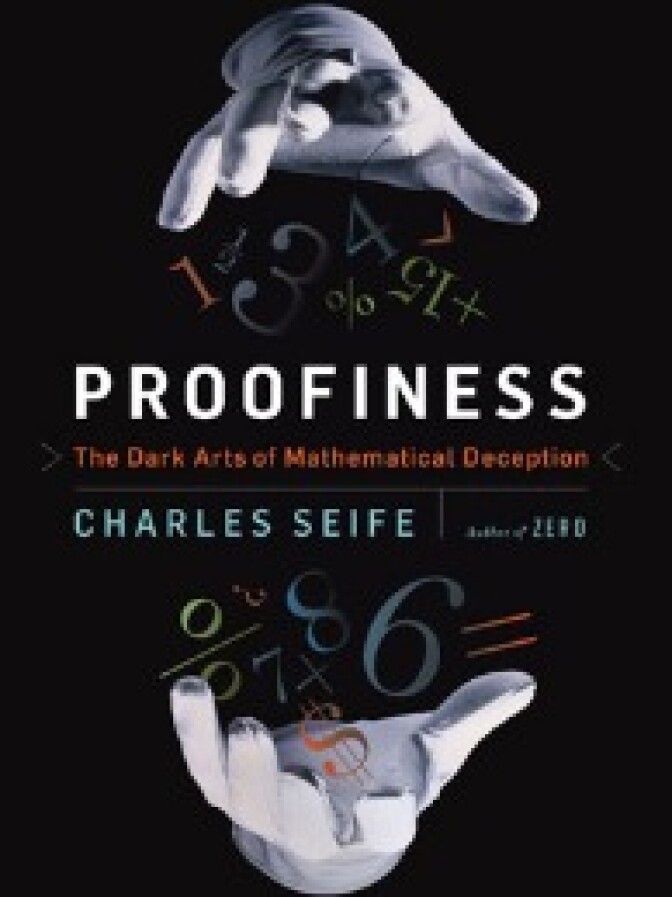In a world filled with opinions, many of us are starved for facts. And statistics seem like a pretty reliable place to turn for sustenance. Take these for example: “diet and brain-teasers will make you 40% smarter;” “blonds will be extinct by the year 2202;” “new moisturizer delivers 70% more moisture in every drop.” These are hard numbers, so they must be true, right? Not really, says Charles Seife, author of Proofiness: The Dark Arts of Mathematical Deception. According to Seife, bogus statistics abound and belief in these so-called “facts” can have serious repercussions in politics, finance, sports and beyond. So why do we trust numbers, no matter how ridiculous, over other arguments? Are there any trustworthy statistics out there? What’s the best way to separate fact from fiction?
Guest:
Charles Seife, author of Proofiness: The Dark Arts of Mathematical Deception; associate professor of journalism at NYU's Arthur L. Carter Journalism Institute



